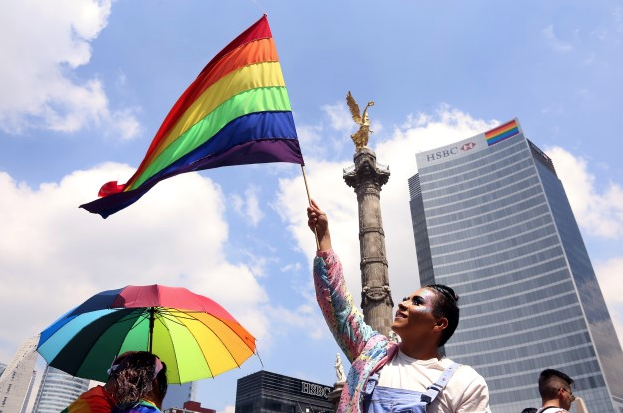Progress in the recognition of LGBT+ rights in Latin America began with the arrival of the 21st century, when in 2002 the Argentine Supreme Court ruled in favor of adoption between same-sex couples. Since then, 75 national rights have been approved in 13 countries, which benefit people of sexual and gender diversity in a differentiated way.
Countries that have recognized LGBT+ rights have done so through four main avenues of approval: executive, legislative, judicial, and autonomous public bodies. This implies that the rights, despite having a national scope, have different legal statuses. Those that have been approved by the Legislature modify laws such as civil codes; on the other hand, those that are recognized by the other three routes do not always manage to change the legal grammar and some even require additional judicial processes.
Argentina, Bolivia, Brazil, Chile, Colombia, Costa Rica, Cuba, Ecuador, El Salvador, Mexico, Panama, Peru, and Uruguay have gradually modified over the course of 20 years the cissexist (the belief that validated bodies are those whose binary gender identities are strictly tied to genitalia, “real” men have penises and “real” women have vulvas) and heterosexual structures that prevail in the political, social, and symbolic order.
This has been made possible by LGBT+ activism that since the 1970s has fought back, often at the cost of their lives.
The Long Struggle for LGBT+ Rights
The historical processes of political transition in the region focused on procedural formality but based on the need to conceive citizenship from the imperative of homogeneity. This implied that, for the sake of making normative reason prevail in the public space to guarantee impartiality, the specificity of bodies and their desires was denied, as well as the difference of race, gender, sexual orientation, and other features that threaten the homogeneous unity and coherence from which liberal democracy is articulated.
The long-standing struggles of sexual and gender diversities, as well as the listening and attention they received in international human rights arenas, allowed their demands to enter the frameworks of understanding the legality of human rights. This meant that democratic countries that have signed international agreements in this area were obliged to address these demands.
But these processes have not been automatic. Despite the international obligatory nature that has been built, LGBT+ people have had to fight for the enforcement of international conventions and treaties on human rights. This battle has been carried out through different strategies, which range from approaching congressmen more empathetic to LGBT+ rights or strategic litigation to the sporadic and limited arrival of people of sexual and gender diversities to positions of popular representation.
Progress and pending challenges
The experience of the countries in the recognition of these rights shows that they have emerged, more often than not, without legal or binding harmonization. For example, civil unions or egalitarian marriages were recognized without the legal robustness that covers heterosexual marriage, which includes adoption rights or the range of legal social security benefits like the right to health care, day care centers, and a pension for the couple in case of death, among others.
In many cases, such as in Mexico (2017), the vote of trans people throughout the country has been approved by the National Electoral Institute. The measure of this autonomous public body is based on the legal absence of national scope of the recognition of the right to gender identity. This has been approved at subnational level, and it was not until January 2021 when this same body by mandate of the Federal Electoral Court established affirmative measures for people of sexual and gender diversity to have quotas to access candidacies for positions of popular representation.
In Peru, the right to gender identity was recognized in 2016 through a ruling issued by the Constitutional Court. But the process for the amendment of the sex in the identity documents must be done through the summary process (abbreviated trials) where this process is still under judicial guardianship. That is to say, the rectification of the sex must be ordered by a judge.
In addition, this type of process in Peru does not establish that trans persons enjoy the right to gender identity in their DNI, although they do in other types of documents that are considered “minor”. In this regard, lawsuits have been filed before the Court, and the Court, in turn, has ordered the National Registry of Identification and Civil Status to recognize the right to gender identity. The response so far, however, has been negative.
These shoddy and disconnected ways of recognizing rights reaffirm the conditions of violence and the discrimination suffered by LGBT+ people for not corresponding with the cissexist and heterosexual mandates under which the morality of liberal citizenship is anchored.
We cannot forget that rights have been approved in only 13 countries and in some of them only one has been recognized, as is the case of El Salvador; two in Bolivia and Panama, or five in Chile, compared to 13 rights in Argentina or 10 in Uruguay, where public policies have also been generated in this regard.
The delay with which the rights of LGBT+ people are beginning to be recognized requires genuine empathy and legal acuity from the democratic governments of Latin America to finally recognize these rights out of the obligation to extend dignity to these individuals who have historically lived on the edges of human decency.
Translated from Spanish by Alek Langford













